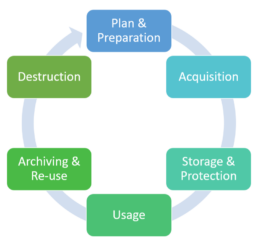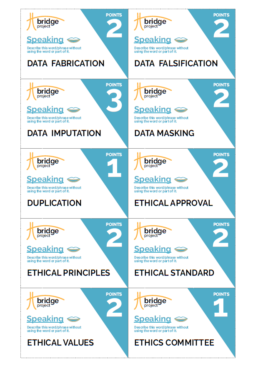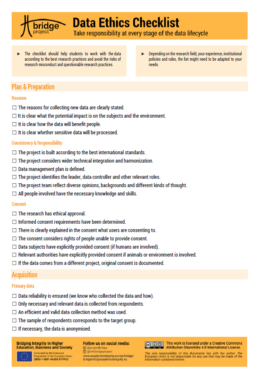Data Ethics Learning Module
In today's world, data has become an integral part of our daily lives, influencing everything from the way we communicate to the decisions we make.
With the exponential growth of data, it has become crucial to consider the ethical implications of how data is collected, stored, analyzed, and used. Data ethics is a field of study that deals with the moral and ethical issues related to the collection, analysis, and use of data. In recent years, data breaches and unethical data practices have become a major concern, leading to a growing demand for professionals who are knowledgeable about data ethics.
This learning module aims to introduce you to the fundamental concepts of data ethics, its importance in the current technological landscape, and how to navigate the ethical challenges that arise in the collection and use of data. The module will cover topics such as privacy, transparency, accountability, bias, and fairness, providing practical insights and real-world examples. We understand that every organization has unique data practices, and as such, we encourage you to adapt the module to suit your specific needs. You may omit certain parts or modify the content to align with your organization’s data policies.
Authors
- Veronika Krásničan, European Network for Academic Integrity, Czech Republic
- Jana Dannhoferová, Mendel University in Brno, Czech Republic
- Pavel Turčínek, Mendel University in Brno, Czech Republic
Main topics
- Personal data protection and matters of privacy and confidentality
- Data ownership, consent and purpose of use
- Trustworthiness of data and data misconducts
- Ethical codes for data protection, manipulation, and use
- Data collection
Training objectives
After completing this module participants will:
- Be able to have necessary skills to work responsibility with data
- Have a guidance on how to behave in difficult circumstances
- Be able to protect the data and privacy
- Be able to distinguish the data ownership
- Have knowledge about the data collection and trustworthiness
Duration
Teachers who wish to use this module in class are free to include all parts of the module or only parts of it. For example, one may use the lectures and the quiz without including the role-play or the vignettes.
We estimate that the module will take 3 hours (1h per each session).
Financed through the Erasmus+ Strategic Partnership project Bridging Integrity in Higher Education, Business and Society (BRIDGE, 2020-1-SE01-KA203-077973) .
Session 1
In today’s digital age, data is all around us. From our social media activity to the information we provide to companies and organizations, data plays a significant role in our lives. Data refers to any information that is collected, stored, and analyzed for various purposes. It can take many different forms, such as text, images, audio, video, and numerical data. Data can be collected from various sources, including sensors, surveys, social media, and transactional systems. Data is often collected for a specific purpose, such as improving business operations or understanding customer behavior. However, data can also be used to generate insights and inform decision-making across various industries, including healthcare, finance, and marketing.
In the following seassion, you will get the basic knowledge about data, data cycle and its ethical aspects.
Objectives
- Define data collection
- Memorize differences between primary/secondary data
- Repeat and practice knowledge by games and discussion
- Compare different ways of data collection and its ethical aspects
Methods
- Brainstorming
- Power point presentation
- Discussion
- Online games
Key learning points
- Data definition, types of data
- Different ways how to get/collect data
- Data cycle
- Data ethics
Materials
flip charts, marker pens, computer or mobile phone with internet connection, computer, projector
Differences between data and information
DISCUSSION ACTIVITY: Discuss with students possible definiton of data and also differences between data and information.
Data, information, knowledge, and wisdom are four related concepts that describe the different levels of understanding and insights gained through the processing of data. Data is a collection of raw facts, observations, numbers, words, symbols, measurements, and descriptions. Data needs to be organized and processed to become useful information. Information gives meaning and context to make data meaningful and useful, improves the reliability of data. Once information is organized and structured, it becomes knowledge, and the application of knowledge in real-world situations leads to wisdom.

Types of data
DISCUSSION ACTIVITY: Discuss with students types of data such as primary data/secondary data, soft data/hard data and also methods of data collection and its strengths and weaknesses.
You can practice differences between primary and secondary data with easy online game (Whack-a-mole: hit moles with primary data sources and avoid hitting moles with secondary data sources): https://wordwall.net/play/53027/605/813
You can practice definitons of qualitative and quantitative data with easy online game (drag and drop each item into the correct group): https://wordwall.net/play/54029/628/126
Data ethics
DISCUSSION ACTIVITY: Discuss with students what is data ethics, what needs to be done to collect, store, analyse and interpret data ethically? What are the possible ethical data breaches?
What is the good and right way of using data? It is not just about consent and privacy. It is not just about minimizing harm. Data Ethics enabled its users to ask questions about the appropriate use of data at all stages of the data journey, refers to right and wrong conduct in relation to data, brings systematization and recommendations. Data Ethics are standards of right and wrong that govern how data gets handled at every stage of the lifecycle.
Look for integrity in the Data Life Cycle
When dealing with data ethics, you should start from the data lifecycle, which is the entire period of time that data exists. Integrity must be guaranteed at every stage of the data lifecycle when people work with data.

BRAINSTORM ACTIVITY: Divide into groups (ideally 6). Discuss what problems can occure at different stages of the data lifecycle. For each stage of the data life cycle, identify and come up with at least three statements that need to be consider with respect to data ethics. For example: It is specified how and where the data will be backed up (at the stage of Storage).
Share ideas within the whole class.
Further information about this topic
- Data ethics: an introduction by Statistics Canada (https://www.statcan.gc.ca/sites/default/files/892000062022001-eng.mp4)
- Introduction to Data Ethics by Odyssey Learning Project (https://youtu.be/l-k_1RQmmVY)
- Introduction to Data Ethics by B. Mittelstadt & the Alan Turing Institute (https://youtu.be/qVo9oApl4Rs)
- What is Data Ethics & Why Do We Need It by Bridget Q. Choi (https://youtu.be/WctQnwkIh5Y)
- Data Ethics and Governnance – origins, progress and priorities by RoyalStatSoc (https://www.youtube.com/watch?v=6OWWi1lYv2k)
- Introduction to data ethics by Coursera (https://www.coursera.org/lecture/data-preparation/introduction-to-data-ethics-AWqwt)
Data ethics board game
A data ethics board game is a unique and innovative way to learn and practise understanding terms connected to data, its collection and ethical considerations surrounding the use of data. Individuals or groups can play the game, and it’s an excellent way to engage students in discussions about data and the importance of data ethics. The game’s objective is to help players learn about the data and ethical considerations surrounding the use of data while having fun in a group setting.
GAME ACTIVITY: Play the Data ethics board game in 2-4 teams with at least two players each.
- During the game, the teams move over the board field, aiming to get to the finish line first.
- Depending on the sort of field they are currently standing at, one player has to react to the presented real-life simulation, answer the question or describe or paint a phrase given on a card, and the other members of his team have to find out what that should be. If they manage to do so, they can move forward.
- The team which will first go threw the whole game plan wins.
Quiz for session 1
Session 2
In order to maintain ethical standards, protect privacy, and respect intellectual property rights, it is crucial to possess the ability to manage, safeguard, and utilize data effectively. The second session of this module you will get the necessary knowledge and skills related to data management, privacy, and intellectual property. By the end of the session, you will gain understanding of how to manage data efficiently, safeguard privacy, and honor intellectual property rights while utilizing data and technology.
Objectives
- Clarify other theory
- Understad story
- Identify and summarize problems
- Distinguish between good and wrong behavior
Methods
- Power point presentation
- Exercise in pairs
- Reflection
- Discussion
- Presentation of video-audio material
Key learning points
- Good record-keeping practices
- Data validation
- How to keep privacy in research
- Intellectual property and its specifics
Materials
flip charts, marker pens, computer or mobile phone with internet connection, computer, projector
Content
Learn more about data management from our CS Guidelines: https://riojournal.com/article/97122/instance/8051553/
VIGNETTE ACTIVITY: download
Learn more about privacy from our CS Guidelines: https://riojournal.com/article/97122/instance/8051553/
VIGNETTE ACTIVITY: download
Learn more about intellectual property from our CS Guidelines: https://riojournal.com/article/97122/instance/8051553/
VIGNETTE ACTIVITY: download
Quiz for session 2
Session 3
As we rely more and more on data to make inform decisions and drive innovation, it’s critical to ensure that the data we use is accurate and trustworthy. Unfortunately, instances of data fraud, fabrication, and falsification are not uncommon, and they can have significant consequences for individuals and organizations. In third part of this module you will learn about common data ethics breaches and finalize by practising working with data by yourself.
Objectives
- Priorizize actions and justify yout choice
- Develop strategy to your own data collection plan
- Share ideas with group, rank it and edit it
- Collect your own data
Methods
- Power point presentation
- Reflection
- Discussion
- Online game – real life examples
- Practical exercise
Key learning points
- Data frauds
- How to prevent data frauds
- How to prepare your own data collection
Materials
flip charts, marker pens, computer or mobile phone with internet connection, computer, projector
Content
The final part of this module will start with theory about data frauds.
DISCUSSION ACTIVITY: Asks students about the data cycle and discuss with them all the possible ethical breaches.
Learn more about data fabrication/falsification from BE Guidelines.
GAME ACTIVITY: Play our scenario game on falsification.
LAST ACTIVITY: Use our checklist when you are working with data.



